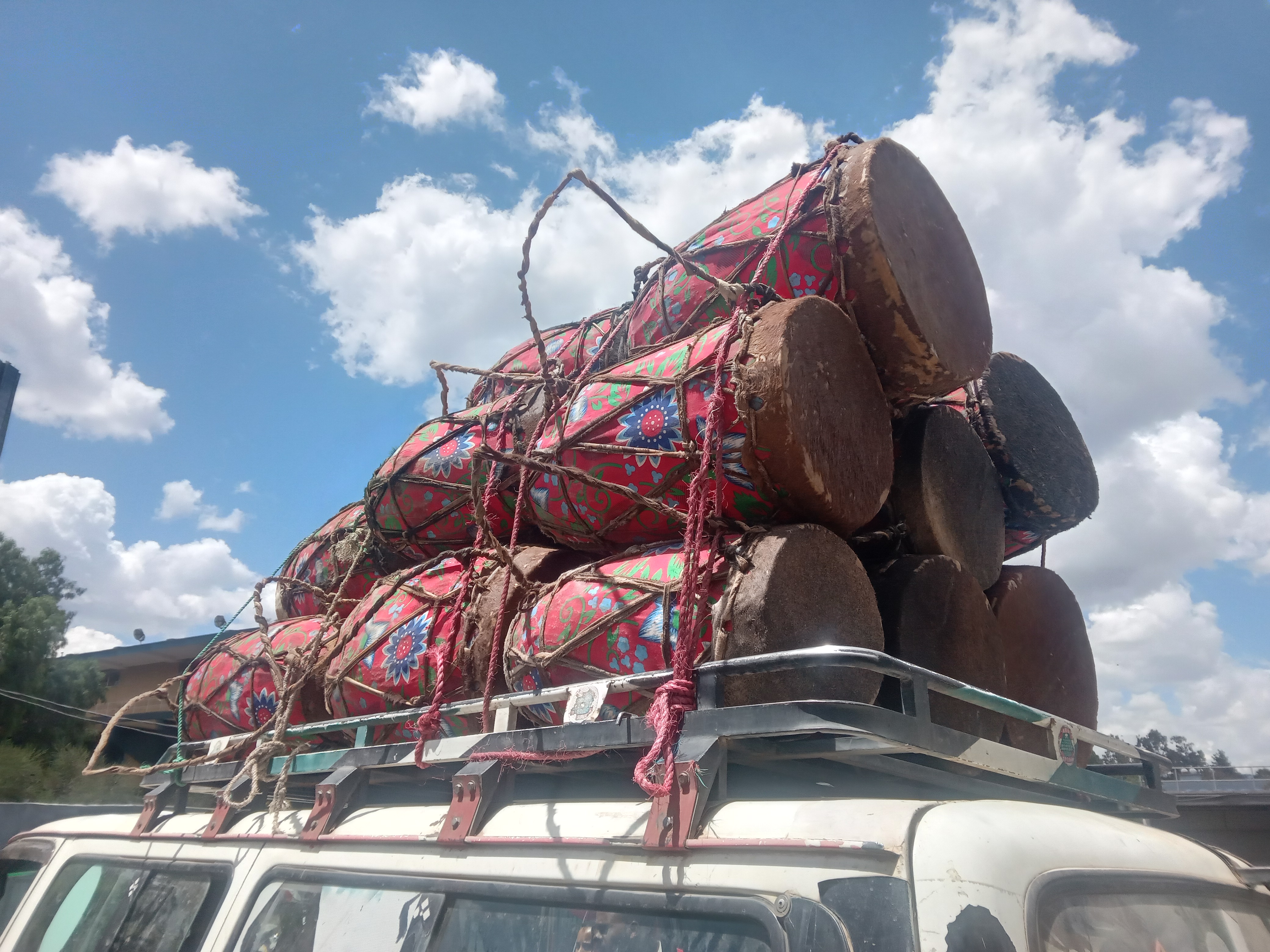
In-Picture | Apr 19,2025
Nov 21 , 2018
By Asseged G. Medhin
If we are to be effective at reducing corruption, we ought to do more than combating it in the literal sense of the word. It is not that laws and effective enforcement do not work, but this focus often overshadows attitudinal shortcomings that we must change.
While the political and economic circumstances are there, the societal factors also contribute to how society has come to view corruption. It is not only low standards of living or lack of accountability that can exacerbate corruption but the belief that taking the illegal path is sometimes a legitimate way of getting by.
A change in attitude, a sum of how we view our environment and the people around us, will produce a tremendous outcome on value systems, which ultimately shapes resource management.
The core of the model for combating corruption, however complex the environment one is working with, should be to sow the seeds of knowledge and value systems in individuals that what is earned is better than what is gotten. This is especially important in a developing country where the necessary tools for arresting corruption have been missing and the attitude, that under some circumstances corruption is fine, runs rampant.
If we ask of the most corrupt person we know whether she is content or not, the reply would probably be “no”. That person will explain that he is corrupt because everyone else is. The experiences from around the world on corrupt bureaucrats or business persons who evade taxes show that they are doing what they are doing because of overt or subtle compulsions. In the core of their hearts, they do not like it.
It is not that surprising that people who are breaking laws by evading taxes, taking bribes, favouring kin could be of any religious, political or ideological creeds. They spend liberally on charitable organisations, building religious institutions and helping the needy; surely, they really are not vicious people. Sometimes, they even are respected by society and their near and dear ones but are not honest people according to the laws of the government.
There are societies where corruption even on the smallest of scales is a great taboo, while it has become a sort of mild nuisance in many African countries. This could be in government institutions or share companies, where under the table dealings have been going on for far too long, that it has become subconsciously acceptable.
A strong value system is thus diluted as a result of corruption, and the community becomes more spoiled with corruption becoming common practice. We begin to have failing institutions, barely trusted by the public, and then economies that stagnate while the few are indeed making it.
A major contributing factor for this may be unaccountability. But the residual factors are such that impunity grows and assimilates the new recruits that come in its way. The political and economic factors that lead to corruption also become cultural. The introduction of strong laws and better enforcement thus would not be able to wash away the ill thoroughly.
An additional effort ought to be made to ensure that education systems and work cultures can encourage and reward an honest day’s work. We have to be able to make corruption taboo by instituting robust and workable good governance frameworks that can shape the value system.
There is no place in the world where corruption does not exist, but there are those where it is far less likely than others to take place.
African countries have not been one of these for such a long time, and even if there is a movement toward ending it, the adage that “old habits die hard” will continue to apply unless a cultural war is waged against it.
PUBLISHED ON
Nov 21,2018 [ VOL
19 , NO
969]


In-Picture | Apr 19,2025

View From Arada | Apr 26,2025

View From Arada | Apr 24,2021

Viewpoints | Nov 27,2021

Obituary | Apr 27,2025

Viewpoints | Mar 09,2024

Viewpoints | Oct 14,2023

View From Arada | Oct 05,2024

Fortune News | Feb 26,2022

Radar | Aug 29,2020

My Opinion | 132272 Views | Aug 14,2021

My Opinion | 128692 Views | Aug 21,2021

My Opinion | 126600 Views | Sep 10,2021

My Opinion | 124206 Views | Aug 07,2021





Dec 22 , 2024 . By TIZITA SHEWAFERAW
Charged with transforming colossal state-owned enterprises into modern and competitiv...

Aug 18 , 2024 . By AKSAH ITALO
Although predictable Yonas Zerihun's job in the ride-hailing service is not immune to...

Jul 28 , 2024 . By TIZITA SHEWAFERAW
Unhabitual, perhaps too many, Samuel Gebreyohannes, 38, used to occasionally enjoy a couple of beers at breakfast. However, he recently swit...

Jul 13 , 2024 . By AKSAH ITALO
Investors who rely on tractors, trucks, and field vehicles for commuting, transporting commodities, and f...

Jul 12 , 2025
Political leaders and their policy advisors often promise great leaps forward, yet th...

Jul 5 , 2025
Six years ago, Ethiopia was the darling of international liberal commentators. A year...

Jun 28 , 2025
Meseret Damtie, the assertive auditor general, has never been shy about naming names...

Jun 21 , 2025
A well-worn adage says, “Budget is not destiny, but it is direction.” Examining t...

Jul 13 , 2025 . By YITBAREK GETACHEW
The Addis Abeba City Revenue Bureau has introduced a new directive set to reshape how...

Jul 13 , 2025 . By BEZAWIT HULUAGER
Addis Abeba has approved a record 350 billion Br budget for the 2025/26 fiscal year,...

Jul 13 , 2025 . By RUTH BERHANU
The Addis Abeba Revenue Bureau has scrapped a value-added tax (VAT) on unprocessed ve...

Jul 13 , 2025 . By NAHOM AYELE
Federal lawmakers have finally brought closure to a protracted and contentious tax de...